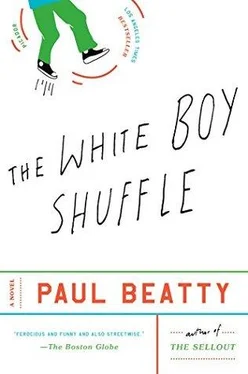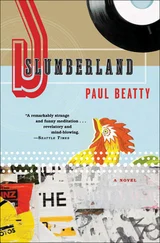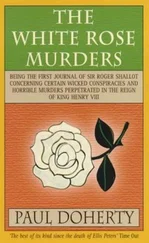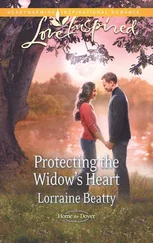• Why jazz musicians tend to date “white” women.
• How to prove you are
not
a nigger.
• How to explain that you’re basically white despite having Lopez as a surname.
• Jane Paleface, renowned Indian rights activist, explains how to claim one sixty-fourth Native American heritage and get your oil and casino kickback checks without having to live on the reservation.
• Plebiscite on admitting full-blooded Puerto Ricans into the Concoction ranks.
Jamal stood there, hands on hips, waiting for a response. I wanted to explain that I’d already tried to join Concoction under the guise that I was a Rwandan exchange student of Hutu and Tutsi descent but was refused admission on the grounds that its bylaws didn’t consider African exogamy dual ethnicity. I decided it was pointless to talk to someone who believed a fashion show would save the black race. Folding the flier into an origami turtle, I handed it to Jamal as a symbol of the progress of his struggle.
My next foray into student activism was with SWAPO, Spoiled Whities Against Political Obsequiousness. SWAPO’s main concern was the school administration’s support of the National Party’s forces in the South African civil war. The best thing about the SWAPO meetings was that I was allowed to drink beer while they wrote the latest act of an ongoing guerrilla theater production, an interminable piece called Black Consciousness Is a Sovereign State of Mind.
“Okay, here’s the part where we hammer home the point of the play, that white liberalism is the bane of black South Africa. Gunnar, will you be the ghost of Steve Biko?”
“Fuck, no.”
“How about the pacifist mediocre tennis player who deserts the revolutionary army, marries a white debutante from Nashville, writes a bestseller on how he found true love in the arms of a white woman and true freedom in the American South.”
“You must be high.”
“But you’re our only black member.”
“I wonder why that is?”
“Why aren’t there more black people at these SWAPO meetings? We’ve reached out to all the black organizations, the frats and sororities, the track team. We play classic soul music at the parties. Don’t they care?”
“Remove your hand from my shoulder and I’ll tell you. See, it’s like this — no one could possibly care enough to be treated like a baby seal. Colored people aren’t mascots for your political attitudes.”
“Then why do you come to the meetings?”
“Because y’all got the best weed on campus.”
“What can I, as a progressive white male, do?”
“If it’s at all possible, shed the fucking John Brown vibe. I don’t need no crackers kissing me on the forehead like I’m a swaddling infant and leading me out of slavery. Did you know that the first person killed in the raid on Harper’s Ferry was the town baggage master, a free black man?”
“No.”
“There are no John Browns. Thank goodness.”
The white boy burst into tears, soaking his shirtsleeves.
“Come on, guy, why are you crying?”
“ My name is John Brown.”
My last SWAPO event was a teach-in on civil disobedience in preparation for Boston University’s gala welcoming of the South African politician M’m’mofo Gottobelezi, the Zulu puppet of the National Party rebels. A graying man in a Grateful Dead T-shirt was singing Crosby, Stills, Nash, and Young’s “Find the Cost of Freedom” and taking extended bong hits between choruses. I looked around for a young Rosa Parks, a gold-toothed Ralph Abernathy, but as usual I was the only black there. A grungy imitation Abbie Hoffman offered me a Che Guevara LSD tab: “Power to the people, my brother.” When the radical hippie stopped staring at all the braless coeds, he taught us how to form human chains by linking our arms and ankles, how to double our body weight by exhaling and letting our bodies go limp as the fascist pigs carted us off the paddy wagon, and how our parents could use the bail money as a small tax shelter.
As the session wound down, someone asked about the specter of police brutality. The glassy-eyed facilitator ground his joint into an ashtray and for the first time looked me in the eye. “When things get rough, I’ve found that the police treat us longhairs much more violently than they do our black and Hispanic hermanos y hermanas.” I passed my hand over my lumpy scalp and heard my father tapping his billy club on the cement. “So, mis compadres, when things get bleak, remember to sing and sing loud.”
A stale version of “We Shall Overcome” chased my shivering body through the snowy streets of Boston, catching me near a statue of Abraham Lincoln lightly touching the head of a kneeling slave. The slave’s pleading expression seemed to say, “Free me, boss. You ain’t got to free nobody else, just me.” I leaned into the slave’s brass ear and whispered, “Tag, you’re it.”
The next night Yoshiko and I woke up with soggy pillows and tear-stained cheeks.
“What was your dream about?”
“What was your dream about?”
“I asked you first.”
“I dreamed me, Nat Turner, Gabriel Prosser, Cinque, and Didi Lancaster were fighting alongside the Irish Republican Army, driving through the streets of Belfast in a station wagon, shooting at the British troops, and singing ‘Find the Cost of Freedom.’ ‘F-i-ind the c-o-o-st o-of fr-e-e-e-dom buried in the gr-ound.’ After a while we got tired of the British machine-gunning us, so we tied a baby to the back of the station wagon. We’d buzz the Brits and they’d turn to shoot but wouldn’t fire when they saw a wailing kid lashed to the rear door. But one day they said fuck it and shot back, killed Nat, Gabriel, Didi, and the baby. I ended up teaching at a hearse-driving school.”
“Who’s Didi Lancaster?”
“This girl I knew in the eighth grade. One day in front of the whole class, Ms. Hanger, the social studies teacher, said she was stupid and would never amount to anything. Didi beat Ms. Hanger to a pulp and threw her out a window. Broke her jaw and cracked three ribs. The whole time she was kicking her ass, Didi was screaming, “Just because you a teacher don’t make you innocent.” What’s funny is Didi’s grades improved after that.”
“Whose baby did you tie to the car?”
“Ours.”
“Good.”
“What was your dream about, Yoshiko?”
“We had a kid and we were tucking her into bed, telling her bedtime stories.”
“What’s so bad about that?”
“The stories went like this. ‘This story is called “The Little Fuck Who Cried Wolf.” Once upon a time there was this shepherd boy who always screaming wolf like a little bitch…’”
“Oh shit, you got to stop hanging out with them Onyx niggers.” I put my head back on the pillow. “Yoshiko, you pregnant?”
“I think so.”
“Good.”
* * *
Having failed to find a stimulating extracurricular activity, I soon found myself in familiar surroundings: the basketball gym, my sneakers squeaking, yelling “help right” and “switch,” and watching Coach Slick Palomino shout and throw chairs at the white kids. Despite playing well and enjoying Scoby’s company on the court, I became depressed with my purposeless life; sad-eyed, I’d toe the free-throw line in an arena filled with screaming maniacs, pondering the worthlessness of my existence.
“Two shots, gentlemen. Relax on the first.” The referee would hand me the ball with a stern look, trying to talk with the whistle in his mouth. “Kaufman, you look glum. What’s wrong — having a poetic moment?”
“I don’t know. Been reading Schopenhauer and I can’t figure out my raison d’etre.”
“Your purpose in life is to make these free throws, then run back and play defense.”
Читать дальше












